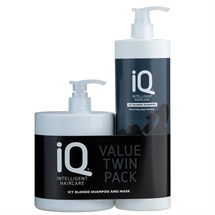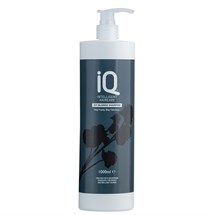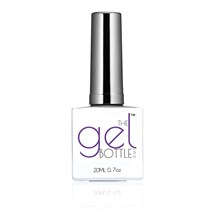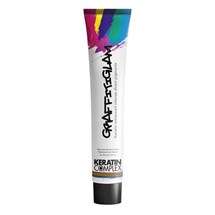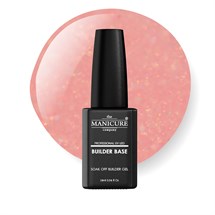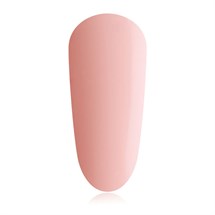Menu

How does my home’s water impact my hair and scalp?

When it comes to hair’s health, there are various things that can impact how healthy your hair, or your client’s hair, is feeling. It’s well known that factors such as heat styling, colouring your hair and using certain hair products can all have a damaging effect on your hair if used improperly, but many aren’t aware that your home’s water can also have an impact on your scalp and hair.
In a bid to reveal how import your salon’s water supply is, and also how important your client’s local water is, below we’ve explained the various ways your water can affect your hair, skin and even your tea! We also analysed the most recent water reports from 47 towns and cities across the UK looking at elements such as water hardness, pH levels as well as amounts of fluoride, chloride, nickel and lead in an effort to find out where in the country has the best and worst locations for hair health
Read on to find out more...

Water effects on the hair
If you find that you struggle to create suds when adding soap to your water, or you have mineral deposits on home’s faucets, then you may have hard water. The good news is, you can confirm your suspicions simply by entering your postcode into a water hardness checking tool online.
So, how does your water hardness affect your hair? Well, hard water contains a high proportion of magnesium, calcium, copper and iron. These minerals can create a film on the hair, making it harder for your hair to gain moisture and thus leaving your or your client’s locks dehydrated and lacking shine.
It can also make hair fizzy and brittle, resulting in more split ends and even cause further problems such as thinning hair or dry and itchy scalps.
For those with coloured hair, unfortunately, hard water can also cause hair dyes to fade quicker and even add brassiness to your hair, potentially reducing the longevity of any blonde shades.
Other elements such as chloride, fluoride and heavy metals like nickel and lead can also dry out your hair, take away shine and leave residue on the scalp. Large amounts of sodium fluoride can also inflame our scalp, making it more prone to flakiness and irritation.
Soft water contains fewer minerals and more sodium than hard water and thus causes less damage to your hair and scalp. It’s worth noting that soft water may leave fine hair in particular feeling slightly limp after a wash but this can be improved with your styling products after washing.
When it comes to pH, our hair has a natural pH of 4.5 to 5.5, and so pure water that is a pH7, is more alkaline than hair. UK water regulations mean that tap water around the country should have a pH between 6.5 and 9.5, but what does that mean for our hair?
Well, as the pH balance of your hair increases, the shaft of your hair cuticle opens. This can mean that using water or products that have a high pH level can lead to possible damage and fizziness, or cause flaking on your scalp. They can be particularly damaging for curly hair, as this texture already has a partially open cuticle, making them more sensitive.
Swansea is revealed to be the best location for hair and scalp health
When looking at local water reports, we found that Swansea residents are enjoying the best water for their hair in the country.
The Welsh city is a reportedly a soft water area, with below 60 particles of hardness dissolved in per million particles of water (PPM) and has low levels of all of the key minerals and metals compared as part of the study, meaning residents can enjoy the best water when washing their hair.
With soft water, a 7.37 pH, and low levels of metals, Manchester came in second in the rankings. Joining them at the top is Liverpool, Bradford, and Warrington.
Best water for hair care:
1. Swansea
2. Manchester
3. Liverpool
4. Bradford
5. Warrington
6. Sheffield
7. Glasgow
8. Blackpool
9. Durham
10. Edinburgh
Overall, cities in Scotland, Wales and Northern Ireland were all found to have soft water, with Scottish cities claiming both 7th and 10th place in the best water lists. Meanwhile the English cities and towns in the study had much more variety when looking at water hardness.

Not everyone is as lucky when it comes to their local water
When it comes to the worst water for hair and scalp health, the study found that Chelmsford came in at the bottom of the rankings. Due to its hard water qualities and high levels of chloride (66.12 mg per litre), Chelmsford residents may be more likely to struggle with their hair due to their local water.
Worst water for hair care
1. Chelmsford
2. Norwich
3. London
4. Bristol
5. Northampton
6. Bath
7. Plymouth
8. Leicester
9. Newcastle
10. Southampton
This is followed by Norwich and London, both areas have been rated as “very hard” when looking at water hardness and featured relatively higher rates of chloride (64.2 and 44 mg per litre, respectively) according to the data from their local water providers.
When it came to areas with the hardest water, the study found that four UK cities qualified for this rating, with over 276 particles of hardness in their water.
Very hard water cities (over 276 PPM):
1. London
2. Norwich
3. Oxford
4. Southampton

How our water effects other elements
And it’s not just our hair that hard water can affect, our skin can also suffer when washing with hard water. Similar to our scalps, hard water can leave a film on our face, leaving the skin feeling dry, flaky and itchy but may also cause problems like acne and eczema.
To counter these impacts, after washing, you should moisturise your skin while it’s still damp to help lock in this extra moisture. Look out for ingredients such as ceramides that will help repair your skin barrier.
For beauty professionals based in a hard water area, remember not to skip on any moisturising parts of your treatment and relay to your clients how they can deal with hard water when doing their skincare routines at home. You may even consider offering treatments specifically made for the water hardness in your local area, so residents can have a treatment tailored to their needs.
For those that like having a beverage with their salon treatments, you may be surprised that your water can even impact the taste of coffee and tea!
Those in a hard water area will not only notice a change to their skin and hair but can find that their cups of coffees have muted flavours and metallic notes. More magnesium can add brighter, fruiter notes to the beverage, whereas calcium can create heavier, creamier flavours to the brew. When it comes to our cuppas, hard water usually makes tea darker and thicker.

How can we minimise hard water impacts?
If you are located in a hard water area, there are certain steps you can take to help reduce any damage from the minerals and metals in your water and help to cleanse your hair from any mineral build-up or films, whether doing so at home on your own hair, or as a hair professional caring for the hair of your clientele.
Using cleansing shampoos, or products that are specifically designed to remove metals and build up from the hair. For example, L'Oreal’s Metal Detox range is specially formulated to remove the build-up of minerals and chlorine from hair, making it an ideal solution for those who have been experiencing the negative effects of hard water on their hair.
Equally, buying filtered shower heads could be an option if you’re wanting to get rid of your hard water from the get-go. Having one of these in your salon can mean that your shampoos and treatments will foam better when washing the hair, and your clients can leave with their hair feeling more thoroughly cleaned and fresh.
You may find that educating your regular clients on how to best clean their hair depending on their local water supplies can encourage them to hair for their care in the proper way, build your relationship and trust with them, and ensure that any cut and colours you’re creating remain healthy and are maintained by your client after leaving the salon.
New & Trending
Freelance Focus
Freelance Focus, is a one stop resource for anyone working as a freelancer or thinking of going freelance in the hair & beauty industry, which includes a FREE downloadable guide filled with advice, useful insights, experiences and tips (from experienced freelancers) to help you understand the steps needed to make the right choices for you.
